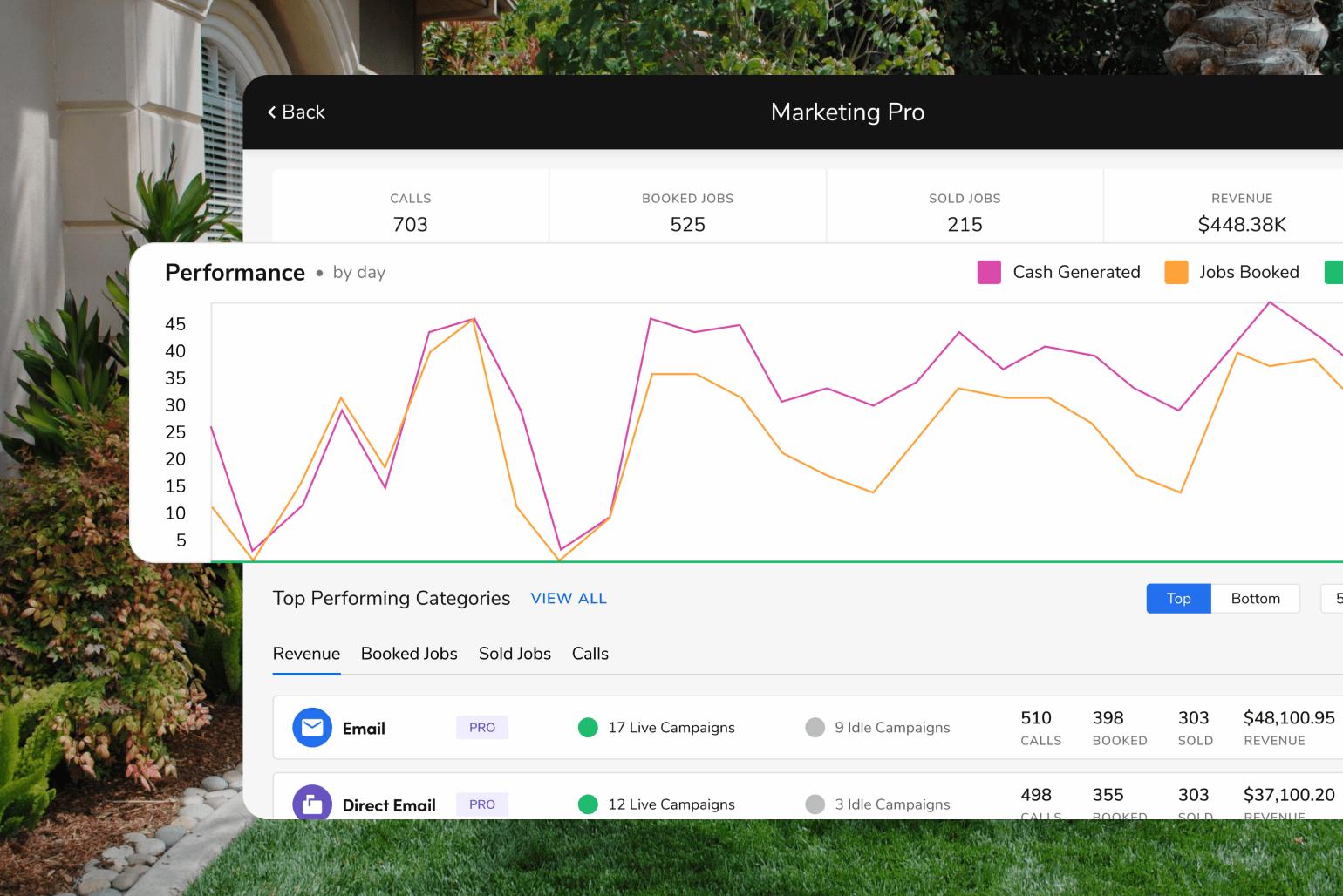Master Cold Calling for Pest Control Sales Success

Cold calling is still a key tool for pest control businesses to contact potential customers, generate leads, and grow sales.
Some may see it as old school, but when done right, cold calling can produce great results, especially in an industry where personal solutions are the key to solving problems like infestations or pest prevention.
However, pest control businesses face common challenges, such as high rejection rates, inefficient outreach, and the need to overcome objections. These hurdles can mean wasted time and missed opportunities and frustrate business owners and sales teams.
This guide will help as it’s full of practical strategies, proven tactics, and ways technology – like FieldRoutes software – can change your approach; it’s your go-to resource for cold calling in the pest control industry.
Let’s get started and turn prospects into customers.
Why Is Cold Calling Still Important for Pest Control Businesses?
Cold calling is a powerful sales tool for pest control businesses.
It allows a personal touch with potential customers, which is often missing in digital marketing. A friendly and engaging phone call can build trust, address specific pest control needs, and set the stage for long-term customer relationships.
What’s more, the stats support its effectiveness: 69% of buyers accept cold calls, making it a valuable lead generation strategy for pest control businesses targeting homeowners and businesses.
Cold calling increases conversion rates and outreach when combined with digital marketing strategies like SEO and email campaigns.
Direct contact: Talk to potential customers about pest problems in real time.
Lead qualification: Qualify a prospect for pest control services.
Immediate feedback: Overcome objections and refine your sales process.
Cold calling complements your pest control marketing by adding a personal touch to your digital methods.
How Can You Prepare for a Successful Cold Call?
Preparing for a cold call requires research, strategy, and practice.
By doing your homework, you’ll be more confident, address pain points better, and increase conversion rates.
Let’s get started and optimize your pest control cold calling.
1. Research Your Leads
Research is the foundation of a good call.
Use customer data from your CRM to identify specific needs and segment your audience. Personalization is key – residential homeowners need pest control services differently from commercial clients.
Segment your leads: Categorize by property type, common pest problems, or location. Think about common pests like ants, spiders, and roaches to tailor your approach.
Use social media insights: LinkedIn can reveal decisions for commercial properties.
Use technology: FieldRoutes helps you to organize and update real-time lead data so you’re always ready.
By understanding your prospect’s pain points, you’ll position yourself as a solution, not just another salesperson.
2. Setting Clear Goals
Define what success looks like for each call.
A clear objective will keep you focused and guide the conversation to a desired outcome.
Set specific goals: Focus on getting appointments or consultations rather than an immediate sale.
Track results: Use CRM systems to monitor call success rates and conversion metrics.
Be realistic: Not every call will result in a sale, but even getting contact information or a follow-up is progress.
Tracking these metrics will help you refine your pest control sales strategy over time.
3. Crafting the Perfect Script
A good script is key to delivering a professional and persuasive pitch. It provides consistency while allowing for personalization.
Opening lines: Start with a friendly intro and mention a specific pain point, “We help homeowners prevent termite infestations that cause $5 billion in damage yearly.”
Address pain points: Discuss how your pest control treatment services solve customers' problems and add value. Mention regular pest control treatments as a preventative measure, re-service when infestations are found after standard treatment, and your commitment to customer satisfaction and effective pest management.
Strong CTA: End the call with a clear next step and get them to schedule a free inspection or consultation.
See our Pest Control Sales Script Guide for more scripts and tips.
4. Practice and Refine Your Approach
Consistent practice makes perfect and prepares you for different situations.
Role play with your team: Practice handling objections or tricky customer interactions.
Record and review calls: Identify areas to improve and adjust your tone, pace, or responses.
Get feedback: Ask peers or supervisors to give you constructive feedback on your delivery and techniques.
Practicing regularly will keep you confident and adaptable for actual calls.
5. Pick the Right Timing
The timing of your call can make all the difference.
Catch decision-makers when they’re most available, and you’ll have a better chance of a meaningful conversation.
Best days to call: Tuesdays and Thursdays tend to be the best.
Best call times: Mid-morning or early afternoon when prospects are less busy.
Adjust for regions: Consider time zones to ensure you’re not calling too early or too late.
Timing is key to looking professional and converting leads.
Now you know how to prepare for cold calling. Now, it’s time to get started.
What Are The Top Strategies for Effective Cold Calling?
Cold calling is a combination of strategy, empathy, and skill.
For pest control companies, it’s about connecting with prospects, solving their pest problems, and offering custom solutions. These will help you turn cold calls into meaningful customer conversations and generate leads for your pest control business.
1. Building Rapport
The first 10 seconds of a call are crucial for connection.
Techniques to connect: Start with a friendly intro and mention something relevant, such as “Many homeowners in your area are dealing with pest problems this season.”
Empathy matters: Acknowledge the customer’s pain with pests.
Match your tone: Match your language and energy to the customer’s style so the call feels natural, not scripted.
Rapport building is the foundation for a productive conversation. Personal touches make your pest control services different.
2. Overcoming Common Objections
Handling objections can turn a no into a maybe.
“I already have a provider”: What makes your services unique, as well as the advanced techniques or eco-friendly options?
“I’m not interested”: Ask open-ended questions to get more info on their current pest control situation. For example, “What’s your biggest concern with pest control services?”
Cost objections: Highlight the long-term savings from preventing damage from pests like termites or rodents. Also, let them know follow-up services are included at no extra cost and that you have a 100% service guarantee.
Preparation and a calm approach to objections will keep the conversation moving.
3. Active Listening Techniques
Listening actively helps you uncover hidden needs and build trust.
Ask open-ended questions: “What type of pest problems have you had recently?”
Identify pain points: Listen for pricing, infestation risks, or past services that didn’t work.
Summarize: Reflect on what they say, “You’re concerned about ongoing ant problems in the kitchen.”
Showing you get, it builds credibility and positions your pest control business as the solution.
4. Highlighting Your Unique Value Proposition
Stand out by showcasing what makes your pest control services the best option.
Unique features: Mention specialized treatments, eco-friendly solutions, or decades of experience.
Standard treatment: Highlight the effectiveness of your standard treatment for low to moderate infestations and the importance of follow-up services to prevent re-infestation.
Success stories: Share testimonials or examples of similar pest problems you’ve solved.
Incentives: Create urgency with limited-time offers or free inspections for new customers.
Your unique selling point will make customers see the benefits of choosing you over the competition.
5. Closing the Call Effectively
A compelling close turns interest into action.
Look for signals: Positive engagement or specific questions about your services means they’re ready.
Get the next steps: Suggest a specific time or free inspection to move the lead forward.
End with a strong CTA: “Let’s get your home pest-free—how does Tuesday at 2 PM work for a free inspection?”
Closing with conviction will get the prospect to take the next step to solve their pest problems.
Now, you’re ready to tackle the mistakes and optimize your cold calling.
What Are the Most Common Mistakes to Avoid?
Cold calling can work for pest control businesses, but common mistakes can kill your efforts. Avoid these pitfalls, and your sales process will be efficient and customer-focused.
Let’s look at the mistakes and how to avoid them for better results.
1. Sounding Too Robotic
Relying too heavily on call scripts can make your pitch sound impersonal.
The risk: Prospects tune out when calls feel scripted rather than real.
Be natural: Use call scripts as a guide, not a word-for-word crutch. Personalize your language and adapt to the customer’s response.
Tonal techniques: Practice varying your tone and pace to keep the conversation lively.
Being authentic will help you build trust and keep the prospect on the line.
2. Ignoring Follow-Ups
Many leads need multiple touchpoints before they convert.
Critical importance: Following up keeps you at the top of your mind, especially for homeowners or businesses considering pest control options. Nurturing leads through consistent follow-up is critical to moving them through the lead generation funnel.
Set reminders: Use CRM tools like FieldRoutes to automate follow-up tasks and track contact attempts, whether inbound or outbound email marketing.
Consistency: Schedule follow-up calls or emails within a certain timeframe to keep the momentum going.
Not following up can mean missing out on lead generation and conversions.
3. Failing to Qualify Leads
Not every lead is a good fit for your pest control services.
Recognize mismatched leads: If the prospect has no pest problems or is outside your service area, move on.
Focus on high-quality prospects: Use open-ended questions to determine specific needs and gauge interest in pest control solutions.
Save time: Focus on leads that will convert and be more efficient. Don’t waste your energy if you suspect a lead will not convert.
Qualifying leads early means you don’t waste time and effort and focus on potential customers.
4. Neglecting to Track Metrics
Without tracking, you can’t know what’s working.
Monitor call success rates: Track metrics like conversion rates, call volume, and ROI to fine-tune your approach.
Use tools: CRM software will gather real-time data and show you areas for improvement.
Adjust based on results: Identify what tactics work and keep doing it.
Data-driven insights are key to optimizing your cold-calling success.
5. Mismanaging Rejections
Hearing “No” is part of the sales process, but handling it poorly can hurt your motivation.
Learn from the responses: Reflect on why the prospect said no and adjust for next time.
Don’t take it personally: Rejections are often circumstantial, not a reflection of you or your services.
Stay tough: Focus on your wins and set realistic goals to maintain confidence.
Managing rejections well will keep you motivated and improving over time.
Now that you know what to avoid, let’s look at how technology can help you cold call better.
How Can Technology Improve Cold Calling Efficiency?
Technology turns cold calling into a streamlined, data-driven process.
Pest control businesses can automate repetitive tasks, track results, and integrate efforts for better outcomes.
Let’s examine how FieldRoutes can make your cold calling more efficient and effective.
1. Automating Follow-Ups and Reminders
Following up consistently is key to closing sales; automation means nothing falls through the cracks.
Automated emails and SMS: Send follow-up messages to keep your business in front of prospects.
Call reminders: CRM software like FieldRoutes will keep your sales reps organized and follow up at the right time.
Smart automation: Tools like FieldRoutes Marketing will nurture leads, win back inactive customers, and promote seasonal services.
Automation saves time, improves customer engagement, and converts your sales calls to customers.
2. Tracking and Analyzing Call Performance
Analytics provide insight into what works and what doesn’t in your cold-calling efforts.
Key metrics to measure: Track call volume, conversion rates, and ROI.
Fine-tune: Use the data to adjust scripts, identify pain points, and handle objections.
FieldRoutes’ reporting tools: The dashboard feature provides instant insights into team performance, helping you make data-driven decisions.
Tracking performance ensures you stay focused on the tactics that deliver results.
3. Managing Customer Data with CRM Software
Having customer data in one place is key to efficiently personalizing calls.
Benefits: CRM will store past interactions, property details, and customer preferences in one place.
FieldRoutes integration: Simplify data management with FieldRoutes’ CRM tools so your team has everything they need for the conversation.
Organized customer data means a tailored approach to each lead and more conversions.
4. Organizing Call Schedules
Prioritize calls based on lead quality so you’re focusing on the best prospects.
Lead prioritization: Use software to rank leads by buying intent or specific pest problems.
Calendar tools: Schedule calls so nothing gets missed.
With scheduled calls, your sales team can be more productive and consistent.
5. Integrating Cold Calling with Other Sales Efforts
Cold calling works best when tied to an overall marketing strategy.
Complements digital marketing: Use data from email campaigns, search engine optimization (SEO), ads, and other pest control website channels to personalize cold calls.
Cross-referencing leads: Identify prospects interacting with online ads or email campaigns for follow-up.
FieldRoutes Marketing Automation: FieldRoutes’ tools email and direct mail campaigns for a seamless sales process.
Cold calling with other initiatives means a unified approach to lead gen and customer engagement.
Now you know how to use these tools to improve your sales.
It’s Your Turn Now
Cold calling can be a game-changer for your pest control business when paired with the right strategies and tools.
This guide has shown how to streamline your efforts, from building rapport to leveraging technology like FieldRoutes’ CRM tools. Success lies in combining effective call scripts, active listening, and smart automation.
Ready to boost your sales?
Schedule a free demo of FieldRoutes Operations Suite today and see how it can transform your process!





